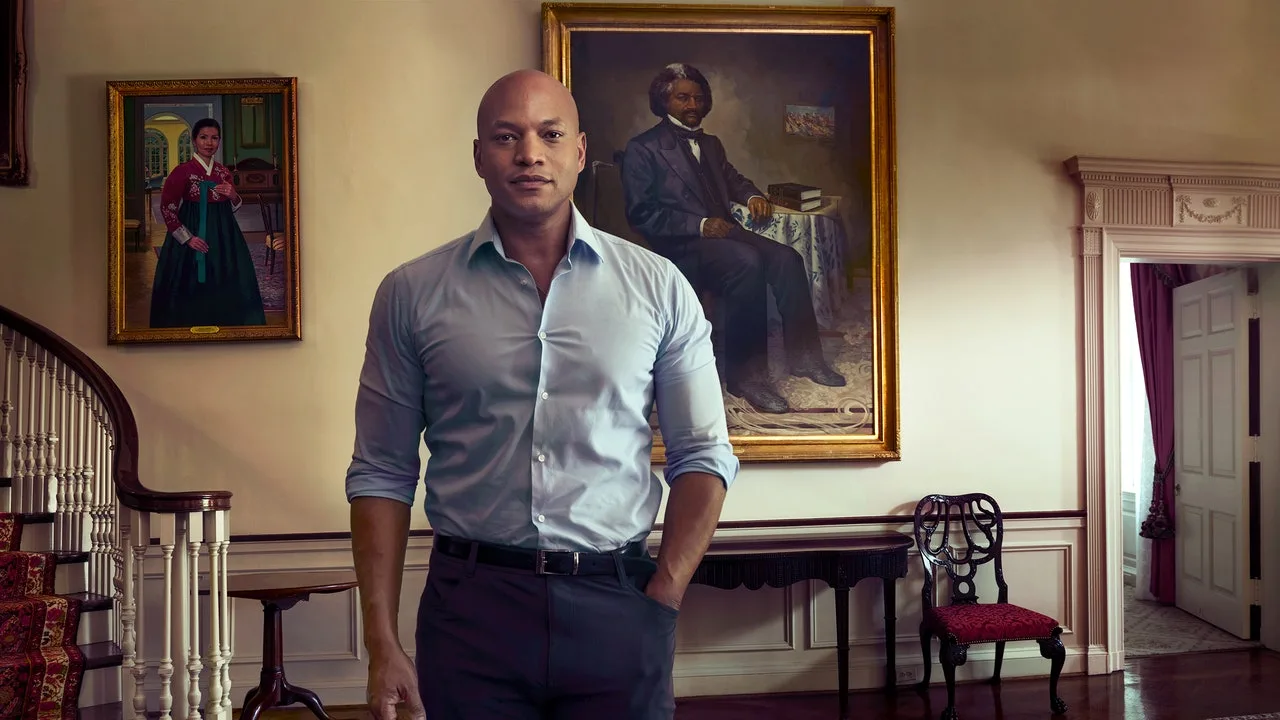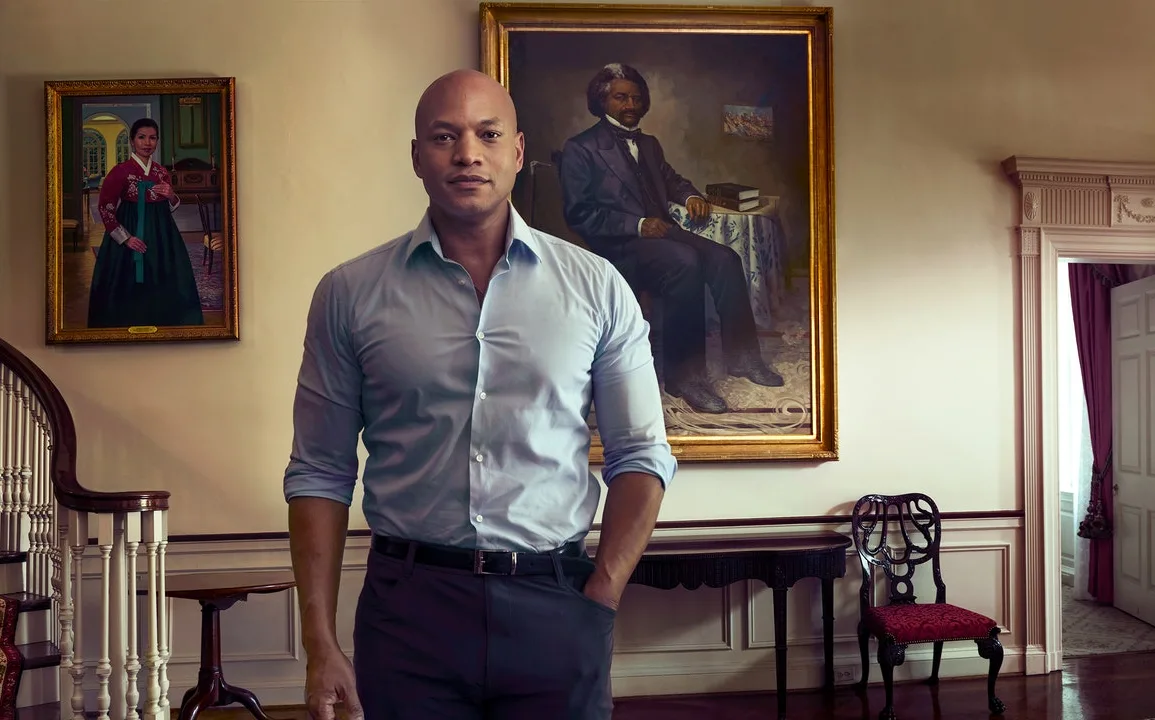
“It seems pretty binary on social media too,” I say.
“That’s not real people. Social media’s not real,” Moore says. “Listen, anybody who’s making their public policy based on what they’re hearing on social media should really find something else to do.”
Exchanges like this may remind you that Moore has navigated his fledgling political career without getting into too many truly bruising fights. MSNBC’s Reid points out that Maryland is by and large a moderate state and that Moore has the benefit of a Democratic supermajority in its legislature. “Meaning that he’s been free to pass a full agenda.” This will be an asset if he has aspirations to a higher office. “He’s easily set up to have a lot of accomplishments,” Reid says. “He can shape his legislative agenda in a very real way. He could easily be marketable in the Democratic Party as a 2028 presidential candidate.”
There’s no question that Moore, former football player, paratrooper, boxing enthusiast, is tough—I kept expecting him to throw out an Army “hooah” during our time together—but how will he respond to the smears and attacks we see in national politics? During his campaign, opponents circulated claims that he’d misled people about his origin story after the publication of The Other Wes Moore, a book that was indeed clumsily promoted as being about two young men who grew up “on the same streets” of Baltimore (a phrase Moore included in the book’s own introduction). If you read the memoir, Moore makes no secret that he grew up in the suburb of Takoma Park, then in the Bronx where his mother moved him and his two sisters following the death of his father. He returned to Baltimore when he was an undergraduate at Johns Hopkins. Schmoke says that claims that the book was fraudulent stung Moore. “It was a little rough going, and you could imagine on the national scene people would dig into that and just really burrow a hole in him. But he found his footing quickly,” Schmoke says. “In politics, there are going to be bumps in the road. There are gonna be hurdles that he is gonna hit. The question is, after he hits it, is he gonna finish the race strong? I think he will.”
Coppin State University is about a 45-minute drive from Annapolis—but spiritually, economically, and demographically it feels much, much farther. This is West Baltimore, where Freddy Gray was arrested and died in police custody in 2015, where protests boiled over into violence in the days after. Moore talks a streak on the drive—about the family’s new puppy, a shih tzu–poodle mix named Tucker (“Shee poo? I called him a ‘shit poo,’ but that’s not right”); how the first lady tells him what to wear (“If people say I look nice, I’m like, ‘Dawn picked it out’ ”); how he cooks Jamaican food by taste and by touch, the way his grandmother taught him (oxtail and curry goat are his specialties); what he likes to listens to (Ezra Klein’s podcast; “Kendrick Lamar, Jay-Z, J. Cole”); the last great book he read (Poverty, by America by Matthew Desmond). We’re passing shabby row houses and deserted corners, and suddenly we are pulling into Coppin. “Sorry I was running my mouth. You didn’t get to absorb where you are.”
But it’s unmistakable, a heady scene, an urban campus thronged with Black families dressed to celebrate graduation. And Moore is in his element. He fist-bumps janitorial staff, trades a joke with Maryland’s state university chancellor, says hello to seemingly everyone in his path. He’s on a schedule but you wouldn’t know it. A wide smile takes over his entire expression as he makes time for a state congressman, and then the guy that brings him his breakfast, which he bolts a few bites of. This is how he campaigned, he’d told me, getting out in communities and talking to everyone he could, and I see how easily it comes to him. He bro-hugs a Coppin security guard I assume he’s known for years. (They’d never met.)
The commencement ceremony is being held on the football field, and it’s a total scene. Coppin is an institution where students have had to scrape and stretch to make ends meet, and the joy of having arrived here, the sense of hurdles and hindrances overcome, is electric. “Y’all are remarkable,” Moore says when he takes the podium to whoops and cheers. “Y’all are beautiful too.” Someone in the crowd returns the compliment. “I heard that,” he says with a laugh. His speech, when he gets it going, packs uncommon uplift. “You might be the first one in your family to be able to don this cap and gown,” he says. “Many of you did not come from financial privilege. For many of you, even attending a university was not preordained. And completion was not a certainty.”
If one feels history in Annapolis, one feels it in a different way at Coppin: The state’s first Black governor, a man whose arrival here, despite all of his charisma and natural leadership, defies odds. The Coppin graduates in their caps and gowns have defied odds of their own. He talks about how hard they’ve worked, the jobs they’ve held down, the kids they’ve raised. He calls on them to use their diplomas to serve. He exhorts them to build a society that’s healing and supportive, to build a world that’s bigger than themselves. “I dare you to serve,” he says. “Service will save us.”


